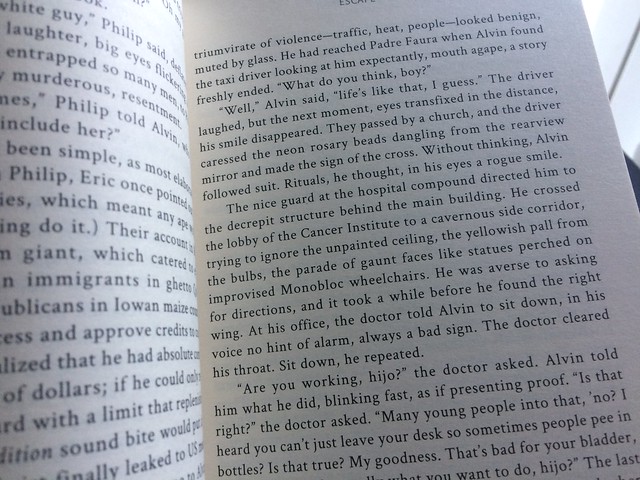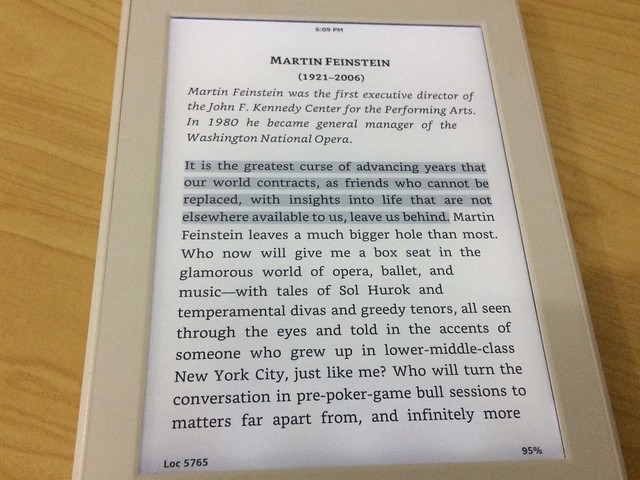And just like that...

Karen, Rich, and I during the end-of-month endorsements. Not in photo: Freddie and Roger.
Labels: medicine
Minutiae of my every day since 2004.


Labels: medicine
Because he can still cause a reaction in me
when he talks about SN2 displacements,
amines and esters looking for receptor sites
at the base of their ketones. Because he lugs
home serious tomes like The Journal of the American
Chemical Society or The Proceedings of the Society
of the Plastics Industry, the opposite of the slim volumes
of poetry with colorful covers that fill my bookshelves.
Because once, years ago, on a Saturday before our
raucous son rang in the dawn, he was just
standing there in the bathroom, out of the shower.
I said Honey, what’s wrong? and he said Oh,
I was just thinking about a molecule.
Because he taught me about sublimation, how
a solid, like ice, can change straight to a gas
without becoming liquid first. Because even
after all this time together, he can still
make me melt.
Labels: daily
Labels: daily

Cheever is a member of that rare group—Witold Gombrowicz, Anaïs Nin, perhaps Franz Kafka—whose private diaries comprise their finest writing. The route to Cheever’s journals is almost always a circuitous one – first one reads his exquisite stories, some of the finest ever written, followed by his largely disappointing novels, his voluminous correspondence, the memoir by his daughter Susan. One comes to the journals, then, ready for something safe and genial and above all expected, the improvisations of a suburban mystic. How thrilling to discover instead this offhand, extemporizing masterpiece, a storehouse of incomparable lyricism—no one writes light or water or fire better than Cheever—commingled with the greatest index of shame in American letters.
Labels: books/reading

In certain forests, when you look up you will see a network of cracks formed by gaps between the outermost edges of the tree branches. It looks like a precisely engineered jigsaw puzzle, each branch growing just perfectly so it almost—but not quite—touches the neighboring tree.
Labels: daily

Labels: daily

Labels: books/reading
I insist not that the life of the Christian shall breathe nothing but the perfect Gospel, though this is to be desired, and ought to be attempted. I insist not so strictly on evangelical perfection, as to refuse to acknowledge as a Christian any man who has not attained it. In this way all would be excluded from the Church, since there is no man who is not far removed from this perfection, while many, who have made but little progress, would be undeservedly rejected.
What then? Let us set this before our eye as the end at which we ought constantly to aim. Let it be regarded as the goal towards which we are to run. For you cannot divide the matter with God, undertaking part of what his word enjoins, and omitting part at pleasure. For, in the first place, God uniformly recommends integrity as the principal part of his worship, meaning by integrity real singleness of mind, devoid of gloss and fiction, and to this is opposed a double mind; as if it had been said, that the spiritual commencement of a good life is when the internal affections are sincerely devoted to God, in the cultivation of holiness and justice. But seeing that, in this earthly prison of the body, no man is supplied with strength sufficient to hasten in his course with due alacrity, while the greater number are so oppressed with weakness, that hesitating, and halting, and even crawling on the ground, they make little progress, let every one of us go as far as his humble ability enables him, and prosecute the journey once begun. No one will travel so badly as not daily to make some degree of progress. This, therefore, let us never cease to do, that we may daily advance in the way of the Lord; and let us not despair because of the slender measure of success. How little soever the success may correspond with our wish, our labour is not lost when to-day is better than yesterday, provided with true singleness of mind we keep our aim, and aspire to the goal, not speaking flattering things to ourselves, nor indulging our vices, but making it our constant endeavour to become better, until we attain to goodness itself. If during the whole course of our life we seek and follow, we shall at length attain it, when relieved from the infirmity of flesh we are admitted to full fellowship with God. (Emphasis mine.)
Labels: faith
Labels: medicine
For me, one of the most comforting things in surviving and recovering from the death of my child was knowing that God was completely and fully in control in his death. Before he created the world, my God had marked the number of days that my son would live.
That means that his life was complete. That means that his death was not random; it was not accidental. That means that it has meaning and purpose.
And it also means that God is in control of my redemption and my healing.
Labels: faith

Labels: daily

"It is with the greatest curse of advancing years that our world contracts, as friends who cannot be replaced, with insights into life that are not elsewhere available to us, leave us behind."
Labels: books/reading
 Michael Dirda on small presses:
Michael Dirda on small presses:All of which said, I want to make a pitch for some works you aren’t likely to find in your local bookstore, no matter how extensive its holdings: small-press titles. In recent years, as trade houses increasingly gravitate to wholly commercial “product,” specialty publishers and independent presses have risen up to make available wonderful books, real books, of all kinds. Let me stress that I’m not talking about those generic print-on-demand titles, most of which are bare-bones ugly and little better than photocopies bound in bland paper wraps. Nor am I talking about self-published work, so much in the news these days. No, I’m thinking of legitimate small publishers with a mission to bring neglected authors back into print and to produce the kind of books that dreams are made of.
Labels: books/reading

Labels: daily

Last fall a friend told me a story about Ryuichi Sakamoto, the renowned musician and composer who lives in the West Village. Mr. Sakamoto, it seems, so likes a particular Japanese restaurant in Murray Hill, and visits it so often, that he finally had to be straight with the chef: He could not bear the music it played for its patrons.
The issue was not so much that the music was loud, but that it was thoughtless. Mr. Sakamoto suggested that he could take over the job of choosing it, without pay, if only so he could feel more comfortable eating there. The chef agreed, and so Mr. Sakamoto started making playlists for the restaurant, none of which include any of his own music. Few people knew about this, because Mr. Sakamoto has no particular desire to publicize it.
Labels: daily
Not all doctors can write—although many write prescriptions that can hardly be read. But one doctor who did write, of course, was Jose Rizal, one of my personal heroes whose travels and haunts I have tried to follow around the world from Dapitan, Singapore, and Hong Kong to San Francisco, Madrid, and Barcelona and, two years ago, to his medical studies in Heidelberg. When my creative writing graduate students in their mid-20s sometimes tell me that they have nothing to write about, or are too young and too new to strive for greatness, I remind them of Rizal, who many forget was only 25 when Noli Me Tangere was published. Twenty-five, and already by then approaching the perfect synthesis of the arts and the sciences in the one same person.
Rizal’s example underscores the need to embrace and imbibe art and science as corporal elements of ideal citizenship. To create a viable national community, we need to promote rational, fact-based thinking and discourse over political hysteria and hyperbole, just as we need to actively recover, strengthen, and sustain the cultural bonds that define us as a people.
To be a UP student, faculty member, and alumnus is to be burdened but also ennobled by a unique mission—not just the mission of serving the people, which is in itself not unique, and which is also reflected, for example, in the Atenean concept of being a “man for others.” Rather, to my mind, our mission is to lead and to be led by reason—by independent, scientific, and secular reason, rather than by politicians, priests, shamans, bankers, or generals.
You are UP because you can think and speak for yourselves, by your own wits and on your own two feet, and you can do so no matter what the rest of the people in the room may be thinking. You are UP because no one can tell you to shut up, if you have something sensible and vital to say. You are UP because you dread not the poverty of material comforts but the poverty of the mind. And you are UP because you care about something as abstract and sometimes as treacherous as the idea of “nation”, even if it kills you.
The Hiligaynon language, also colloquially referred often by most of its speakers simply as Ilonggo, is an Austronesian regional language spoken in the Philippines by about 9.1 million people, mainly in Western Visayas and SOCCSKSARGEN, most of whom belong to the Visayan ethnic group, mainly the Hiligaynons. It is the second-most widely spoken language and a member of the so-named Visayan language family and is more distantly related to other Philippine languages.
Historical evidence from observations of early Spanish explorers in the Archipelago shows that the nomenclature used to refer to this language had its origin among the people of the coasts or people of the Ilawod ("los [naturales] de la playa"), whom Loarca called Yligueynes (or the more popular term Hiligaynon, also referred to by the Karay-a people as "Siná"). In contrast, the "Kinaray-a" has been used by what the Spanish colonizers called Arayas, which is most probably a Spanish misconception (as they often misinterpreted what they heard from the natives) of the Hiligaynon words Iraya or taga-Iraya, or the current and more popular version Karay-a (highlanders - people of Iraya/highlands).
Labels: daily
